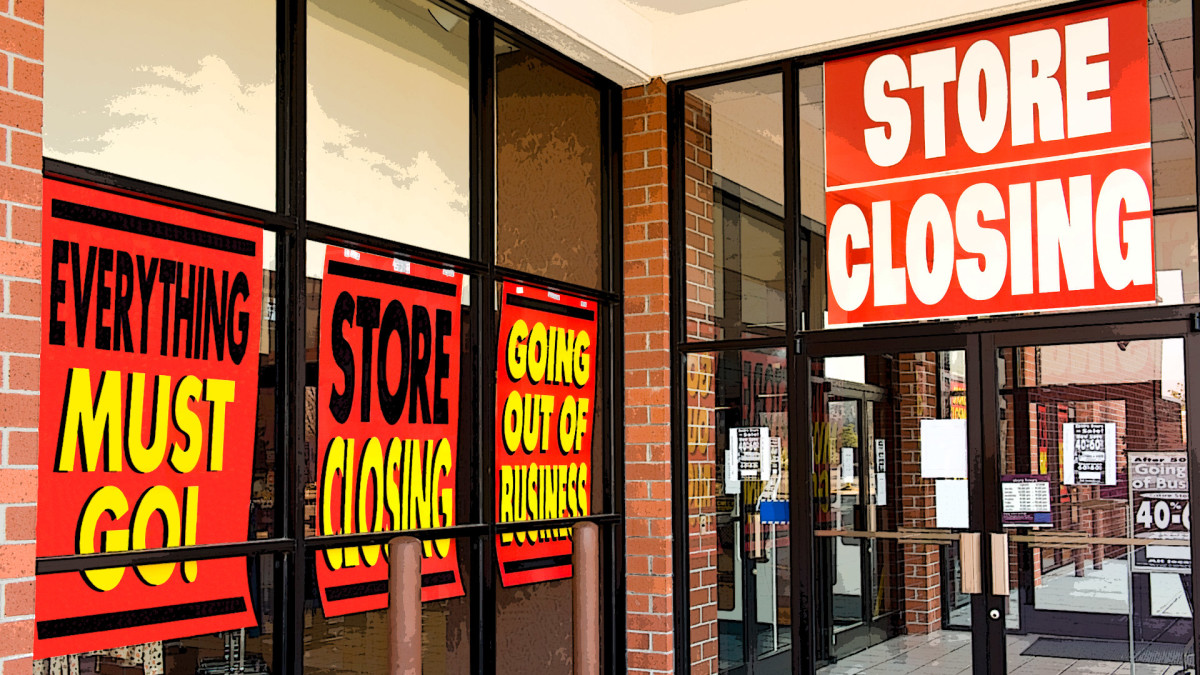
It's been a tough run for discount retailers, with many closing stores or filing for bankruptcy in recent years. Rising interest rates and persistent inflation have battered discount stores, some of which enjoyed broad success during the pandemic when Americans were in cost-cutting mode.
In mid-2024, Dollar Tree announced plans to close almost 1,000 stores in response to a bleak fourth fiscal quarter. And in September 2024, Big Lots filed for bankruptcy with initial plans to shutter its nearly 1,400 locations. It later reached a deal to keep some, but not all, of its stores and distribution centers open.
💸💰 Don't miss the move: Subscribe to TheStreet's free daily newsletter 💰💸
Given the toll inflation has had on consumers, it’s been surprising to see so many discount chains flounder. A 2024 KPMG survey found that 65% of Americans, including nearly 60% of those making $200,000 or more, expected to do more discount shopping during the year.
Related: Popular discount retailer files bankruptcy, closes all stores
Yet discount stores are continuing to feel the pressure. And while Americans may be more open to discount shopping in today’s economy, the reality is that many are still in conservation mode, cutting corners wherever possible to avoid debt at a time when interest rates are far from favorable.

Shutterstock
Bargain Hunt files for bankruptcy, liquidates stores
Earlier in February, Nashville, Tenn.-based Bargain Hunt filed for Chapter 11 bankruptcy and announced plans to liquidate and close its 92-store footprint by the end of the month. The discount retailer has locations across the Southeast and Midwest.
Related: Popular bankrupt retail chain finds buyer for brand and assets
Bargain Hunt's merchandise includes clothing, home decor, toys, and seasonal items. Going-out-of-business sales have already begun.
Like many troubled retailers, Bargain Hunt succumbed to broad economic pressures and widespread competition in the discount store space. But there was one additional factor that sealed Bargain Hunt’s fate and drove it to the point of no return.
A lost Amazon partnership led to bankruptcy
Although Bargain Hunt was known as a value retail chain, in addition to its retail business, it maintained a reverse logistics wholesale operation that was even more profitable. Amazon was Bargain Hunt's largest supplier in that regard, providing Bargain Hunt with customer returns.
But in 2024, Amazon opted to reassess its reverse logistics partnerships. Bargain Hunt initially lost a quarter of its Amazon business before losing the partnership completely when that cut caused the discount chain to fall behind on its payments.
Court documents show that Amazon is Bargain Hunt's top creditor and is owed over $29 million.
Related: Popular apparel retailer files for Chapter 11 bankruptcy
But the role Amazon played in Bargain Hunt’s demise isn’t necessarily limited to pulling the plug on a partnership.
The online retail giant has, for years, managed to undercut physical retailers. And the late 2024 introduction of Amazon Haul, its online discount store, has only made matters worse for brick-and-mortar discount stores.
Amazon Haul features a selection of items priced at under $20, though many of its products cost less than $10. And with a range of products that's similar to Bargain Hunt's lineup, it won't be surprising to see more discount retailers crumble as Amazon Haul takes off.
More bankruptcy:
- Popular bankrupt restaurant chain unloads successful locations
- Formerly bankrupt burger chain rescued by fast-food rival
- Former bankrupt craft beer chain adds locations after closings
Amazon Haul was created to compete with low-cost competitors like Temu and Shein. Customers won't enjoy the same fast shipping that's synonymous with the Amazon name, though. The promised turnaround for Amazon Haul delivery is two weeks or less.
Still, customers may be willing to sit tight and wait for their products to capitalize on Amazon Haul's ultra-low prices. And given the convenience factor, it's easy to see why a growing number of consumers might soon forgo the in-person discount shopping experience in favor of scrolling their way to a cart full of bargains.
It won’t be surprising to see an uptick in discount retail bankruptcy filings given Amazon’s tendency to dominate every market it dips its toes into.
Maurie Backman owns shares of Amazon.


.png?w=600)




